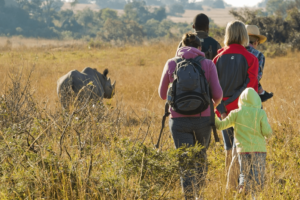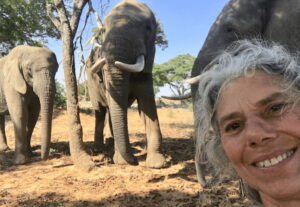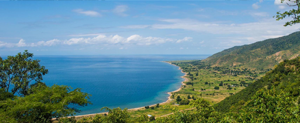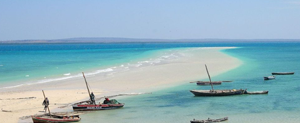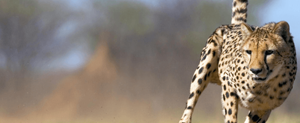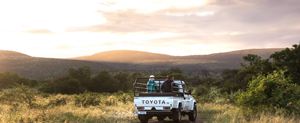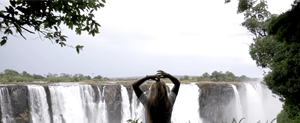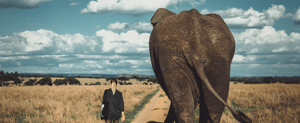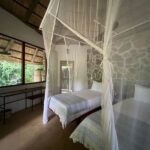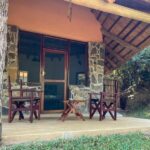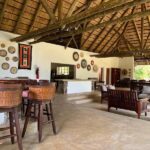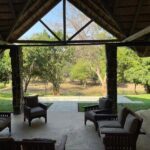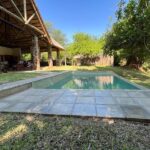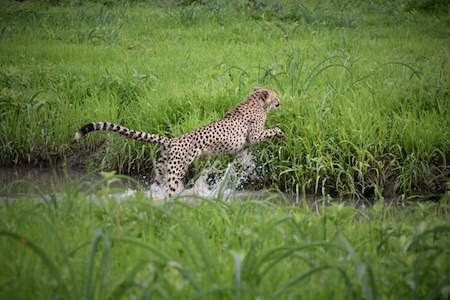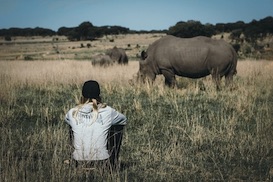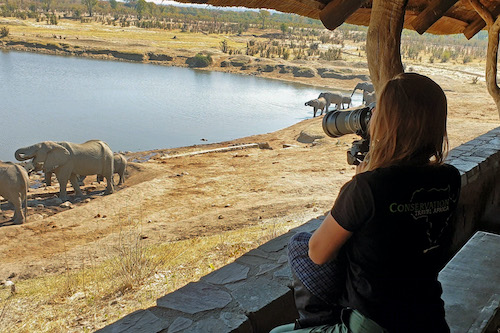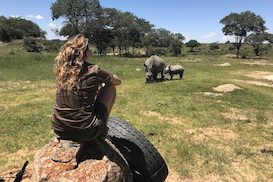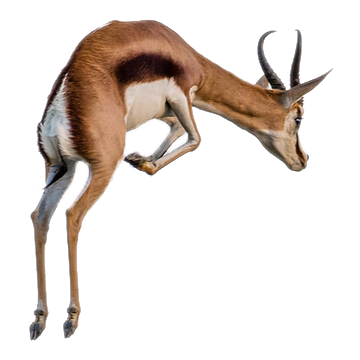Environmental Conservation &
Wetlands Management
MALAWI
Malawi
1 - 12 weeks
Monday
Up to 8 people
Age 18+
From £870
Malawi
1 - 12 weeks
Monday
Mon
Up to 8 people
Max 8
Age 18+
From £870
What's the environmental conservation project about?
This program is dedicated to the environmental conservation of a whole ecosystem – from wetlands to forests, woodlands and plains. You will help protect a wetland of international importance, home to hundreds of bird species. Volunteers also assist with the ongoing management of a wildlife conservancy, get involved in conservation initiatives and work on income-generating projects in local communities. Your work is meaningful, useful and rewarding.
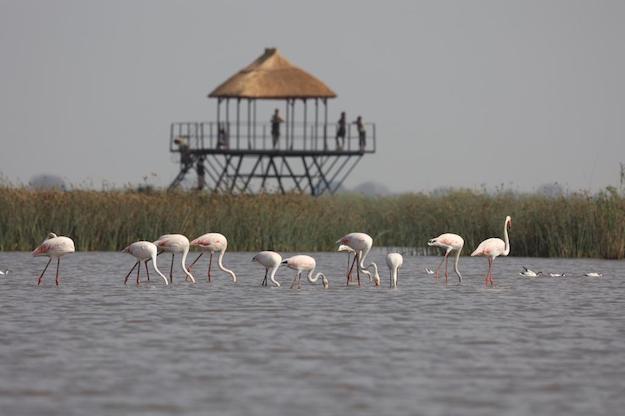
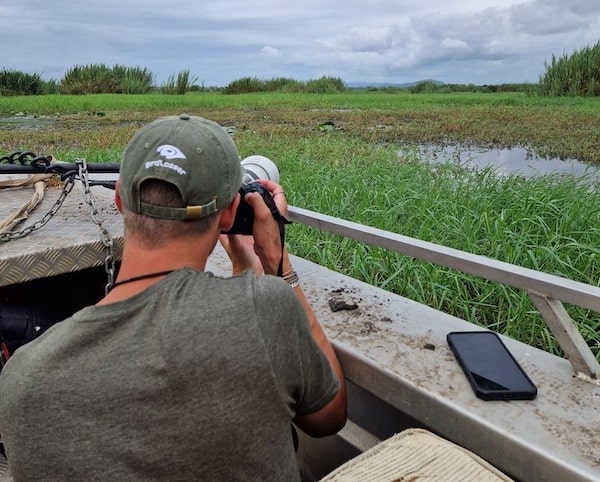
How will I be contributing?
This is a special opportunity to get involved with a brand-new environmental conservation initiative, working in Malawi’s unique Elephant Marsh. The area is an ecological hotspot – where diverse landscapes meet sustainable agriculture, incredible birdlife, wildlife conservation and a rich cultural heritage. The main elements of the program are environmental conservation, upliftment of local communities and boosting the incredible wildlife and bird species in the Lower Shire Valley. Volunteers will also be instrumental in pioneering initiatives to reduce reliance on poaching, illegal fishing and deforestation in rural communities.
What makes this environmental conservation project unique?
Conservation of the Elephant Marsh will be one of the highlights of your volunteer trip. Canoeing and boating down its many channels is like being in Malawi’s version of paradise. Part of your role as a volunteer also involves preserving one of Malawi’s last Riparian forest habitats. Wildlife in the area is threatened by poaching and habitat degradation, particularly waterbirds and mammals seeking refuge from surrounding cultivated areas. The project offers a rare chance to contribute to a brand-new environmental conservation initiative. This aims to preserve not just wildlife, but also the diverse habitats and ecosystems in one of Malawi’s richest conservation areas.
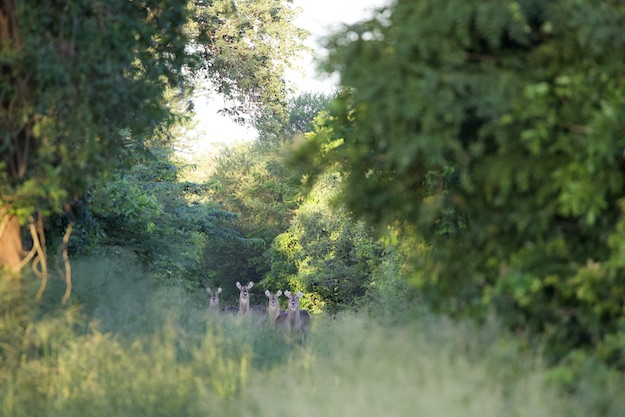
Project gallery
Our environmental conservation volunteer program is very hands-on, focusing on preserving the Elephant Marsh and the surrounding Riparian forests for future generations of wildlife and people.
Your work will include biodiversity and sustainability projects, vital for the restoration and ongoing protection of some of Malawi’s most important conservation areas.
Activities are split into three areas:
- Environmental conservation within the Thangadzi River Conservancy.
- Upliftment of local communities living around the conservancy.
- Working in the Elephant Marsh.
Project highlights:
- Exploring woodlands and forests on foot, learning to track small carnivores and antelopes of all shapes and sizes!
- Building walkways and hides to further explore and study the animals and birds in the area.
- Help conserve one of Malawi’s last Riparian forest habitats through deforestation programs.
- Canoeing through the waterways and wetlands of the Elephant Marsh.
- Studying more than 330 bird species, including rare and endangered migratory and aquatic birds.
- Big 5 game viewing in the nearby Majete Wildlife Reserve.
No two days will be the same and the diversity of the programme will take you through the bush, into Malawian communities and schools, and the heart of the Elephant Marsh.
Wildlife and Conservation Activities
You will find Buffalos, Giraffes, 10 species of antelope including Nyala, Kudu, Bushbuck, the illusive Livingstone’s Suni and Common Duiker, as well as small carnivores such as the African Civet, Serval and Side-Striped Jackal. If you are very lucky, you may also catch a glimpse of one of the world’s most trafficked animals, the highly endangered pangolin.
Activities may include:
- Bird and animal monitoring, including game counts, health checks, bird mapping and population studies.
- Management of the Riparian forest through tree planting and removal of invasive plant species
- Building projects e.g. building hides, walkways and tree houses for camp-outs.
- Maintenance including roads and fences and removal of fishing nets.
- Animal and birdlife research surveys and data collection.
- Learn the tracks and signs of wildlife on bush walks and game drives.
- Help with anti-poaching operations including snare patrols, fence and boundary monitoring.
- Assist with translocations of animals in and out of the conservancy to maintain and improve genetic diversity.
- Mapping the conservancy’s roads and rivers.
- Setting camera traps to understand the area’s wildlife better.
- Big 5 Experience in Majete Wildlife Reserve (see separate tab).
As this project is newly established, some of the work you do will be to further the conservancy’s knowledge of the area and its wildlife, such as creating and updating maps and guidebooks.
Elephant Marsh Activities – conserving Malawi’s birdlife
Conserving this wetland is of utmost importance. The marsh is alive with aquatic birds and is a visual feast for seasoned birders and those new to Africa. You will see flocks of migratory pelicans and thousands of flamingos putting on a show. You will also find storks and ducks soaring overhead, with smaller waterbirds and waders peppering the riverbanks. Most of your time in the Marsh will be spent in boats or canoes.
Activities you may be involved with include:
- Identification and data capture of bird species.
- Building and maintaining new walkways and birding hides in the marsh.
- Regular boat and canoe trips to explore and map the marshland.
- Marshland research projects to understand the marsh ecosystem.
Community Outreach Activities
All successful conservation areas rely on the support of the communities living nearby. There are enormous opportunities for community empowerment in Malawi. Each of the community activities plays a positive role in creating income-generating opportunities for the villages living around the conservancy. These ensure the communities can become less dependent on the conservancy as a source of food and firewood.
Current community programs and activities include:
- Charcoal production – using invasive plant species to create charcoal and combat deforestation.
- Bamboo initiative. Help to build a bamboo workshop to enable communities to use it as a sustainable income generator.
- Community conservation education via game drives in the conservancy and talks about the importance of using natural resources sustainably.
Every other week the team will pack up a fly camp and head for a 2-night camping safari into the Majete Wildlife Reserve. Majete is around 2 hours drive from Shire Valley and is one of Malawi’s most unspoilt and remote National Parks.
Since 2003, when the park had almost no wildlife remaining, Majete has thrived. The Park is now home to thriving populations of rhinos, elephants, lions, cheetahs and African wild dogs. It has been transformed from a sink to a source of value, a living example of how community buy-in can transform a landscape. You can read more about Majete here.
During your time in Majete you will put your tracking and bush skills to the test with the experienced guides, go on game drives into the wilderness, enjoy camping under the stars and cook and eat traditional food cooked over a fire.
When can I join the environmental conservation program
The project is open year-round, with the exception of the Christmas and New Year period. It is closed from 16th December 2024 – 13th January 2025.
Project pricing:
1 week (on application): $800
2 weeks: $1500
4 weeks: $2,800
Airport transfers on any days other than specified Mondays: $100.
We recommend bringing around $100 per week to cover expenses such as drinks, meals out and souvenirs.
One week projects may not include Majete Wildlife Reserve visit.
All prices are in USD.
What’s included in the cost?
- Project contribution: this goes directly to our project partner, and provides funding to ensure the programme can continue to meet its goals. For this project it will cover things like staff costs, equipment purchases, maintenance of buildings, equipment and vehicles, and fuel.
- Accommodation and three meals per day.
- Return airport transfers (Mondays).
- Laundry service and housekeeping
- Camping trip to Majete (2 and 4-week stays)
- Comprehensive orientation and supervision.
- Practical instruction by experienced staff members.
- Equipment and materials required to do your work.
What’s not included?
- Flights to Malawi (Blantyre International).
- Visa fees (if applicable).
- Travel insurance (compulsory).
- Personal expenses such as souvenirs, drinks, snacks.
- Additional excursions outside of project trips.
- Local SIM card and data / airtime.
- Administration fee ($40).
View our booking terms and conditions.
Support a vision of community, agriculture and conservation
This project is based at the Thangadzi River Conservancy in the heart of Malawi’s beautiful Lower Shire Valley. The Thangadzi River Conservancy originated as part of a holistic vision to cement the relationship between agriculture, community empowerment and conservation.
The Shire (pronounced ‘Shirry’) Valley is located southwest of Blantyre, Malawi’s second city. The Valley is an extension of the ancient Rift Valley, taking its name from Malawi’s largest river, the Shire River, which flows out of Lake Malawi and into the Zambezi River in Mozambique. As the river descends further down into the Shire Valley it broadens into a massive floodplain, bordered by very fertile agricultural land.
The area is an ecological hotspot – where diverse landscapes meet sustainable agriculture, incredible birdlife, wildlife conservation and a rich cultural heritage.
Conserve Malawi’s environmental biodiversity.
The 2,000-acre Thangadzi River Conservancy is home to one of Malawi’s last remaining riparian forest habitats. A riparian forest is a wooded area directly next to a river, in this case, the Shire and Thangadzi Rivers.
Riparian forests in Africa provide important habitats for endangered plant, bird and animal species but are often severely disturbed by human activities and invasive plant species.
It is a huge privilege and challenge to get involved with conserving this last remaining unique ecosystem.
A unique opportunity to conserve The UNESCO Elephant Marsh
The Thangadzi River Conservancy borders 3km of the world-famous Elephant Marsh, named by David Livingstone due to the abundance of elephants he observed. While the elephants are now gone, the marsh was designated as a UNESCO Ramsar site in 2017 – a wetland of international importance. In addition to Hippos, it is now home to more than 20,000 waterbirds including many endangered species. However, poaching and habitat degradation threaten the remaining wildlife, particularly waterbirds and mammals seeking refuge from surrounding cultivated areas.
Your help will make a big difference in preserving the Marsh and the surround Riparian forests for future generations of wildlife and people.
Who should volunteer on this project?
The project is ideal for volunteers who are driven and passionate about wildlife and the environment, seeking a one-of-a-kind and immersive experience. You will play a part in helping to build a volunteer program and conservation initiative from the very beginning. This project is also a bird lover’s dream.
You should be able to communicate in and understand conversational English.
How old do I need to be to volunteer?
The minimum age for solo volunteers is 18 years old. Families are accepted and we suggest the minimum age for accompanied children is 10 years old. There is no upper age limit, subject to the health and fitness levels mentioned above.
How many people will there be?
There will be a maximum of 8 people at the program at one time. This is to ensure that everyone has a unique and personal experience.
When can I arrive?
The inclusive transfer is as follows:
Arrivals – Mondays: there is one airport collection from Blantyre International Airport every other Monday. A team member will be at the airport from 0900 to collect all the volunteers arriving that day. You will depart from the airport no later than 1530, as it is a 2.5-hour drive to the lodge, and the project team only drive during daylight hours.
The latest your flight can arrive for a same-day transfer is 1500. Should your flight arrive later than this, you can either arrive the previous evening and overnight in town, or you can pay a transfer supplement of $100.
Departures – Mondays: there is one transfer every other Monday, which arrives at the airport at 0700 on Monday morning. Flights should depart later than 0900 to allow plenty of time to check-in. Should you wish to book a departure transfer outside of this time, there is a supplementary charge of $100.
Please do not book flights departing before 0900 as even a private transfer cannot get you to the airport in time.
How long can I stay?
Volunteers should ideally be able to stay for a minimum of 2 weeks. A one-week stay is possible – please check with us for more details and dates.
Do I get some time off?
Saturday afternoons and Sundays are leisure days. Lunch and dinner is provided on a Saturday, but on Sundays volunteers are responsible for preparing their own meals (food is provided).
There is a pool at the lodge and lots of board games and cards.
How do I keep in touch?
Cell phone roaming is available in Malawi and we recommend getting a local SIM card on arrival. There is WiFi in the main lodge building charged at $10 per device per week.
What’s the weather like?
Wet season in southern Malawi is from November through to February/March, but it is very pleasant as rains last only an hour or so in the afternoons and it makes the country lush and green! It can regularly reach around 38-40 degrees in the hot months of October and November. January to March is warm and humid.
From April to September the weather is temperate, with warm sunny days (20-30 degrees) and cooler nights.
Do I need a visa to enter Malawi?
Many nationalities can enter Malawi for tourism purposes without a visa. Please check your eligibility well in advance of travel. You can check the latest requirements here: https://www.evisa.gov.mw/. If you need a visa in advance of travel, let us know and we will supply you with a letter of invitation. Please ensure you apply for the e-visa at least a few weeks before you are due to arrive. The cost is around $50 for a single-entry tourist visa.
How much money should I bring?
We recommend travelling with around $100 per week in USD cash to cover your bar bill, WiFi and any village visits.
What vaccinations do I need?
Please consult your GP or travel clinic for detailed medical advice. We recommend that volunteers ensure that they have a recent tetanus booster and that their childhood vaccinations are up to date.
Is the project in a malaria region?
The whole of Malawi is a malaria area so you recommend you bring anti-malaria tablets for the duration of your stay. Doxycycline or Malarone are usually prescribed by your doctor.
What animals will I get to see?
Today the area is a haven for unique birdlife with more than 350 species recorded within the conservancy. The Elephant Marsh, which borders the reserve, is a haven for unique birdlife, including many endangered species and migratory aquatic birds. It is a bird-lovers paradise. On land, you will find Buffalos, Giraffes, 10 species of antelope including Nyala, Kudu, Bushbuck, the illusive Livingstone’s Suni and Common Duiker, as well as small carnivores such as the African Civet, Serval and Side-Striped Jackal. If you are very lucky, you may also catch a glimpse of one of the world’s most trafficked animals, the highly endangered pangolin.
Other projects you might be interested in
Monitor iconic and endangered species including lions, cheetahs, vultures and hyenas. Collect data that is used for long-term conservation strategies.
From £1,500
2 - 12 weeks
Join a unique conservation programme, dedicated to the protection of the black rhino. Play a vital role in securing the future of these iconic animals.
From $950
1 - 12 weeks
From $1,795
2 weeks
A FGASA-endorsed 6-week course perfect for people who want to have a more in-depth wildlife experience and learn more about the environment.

